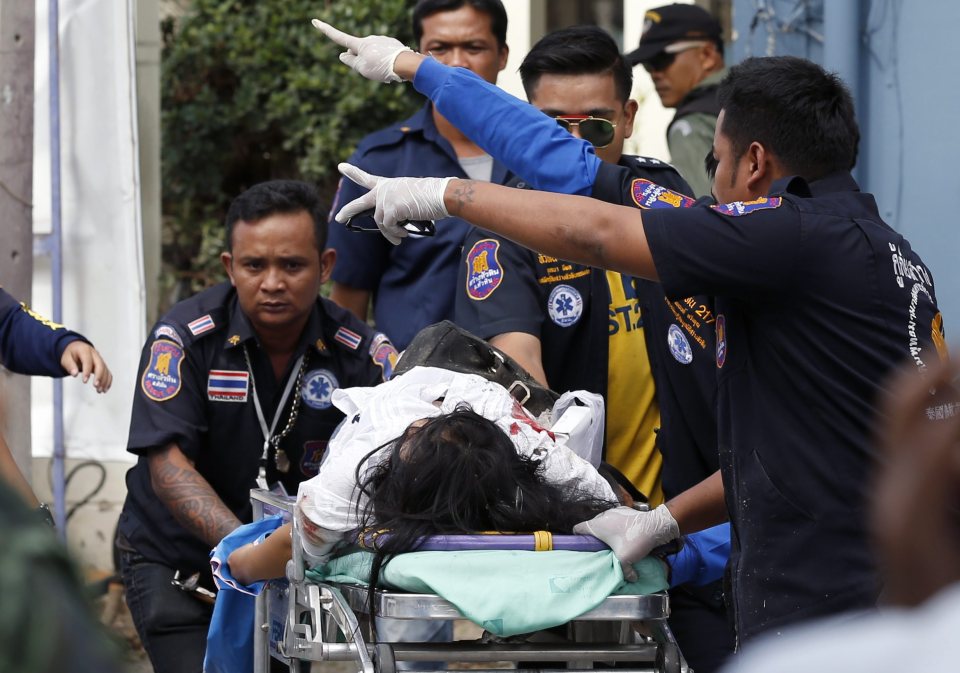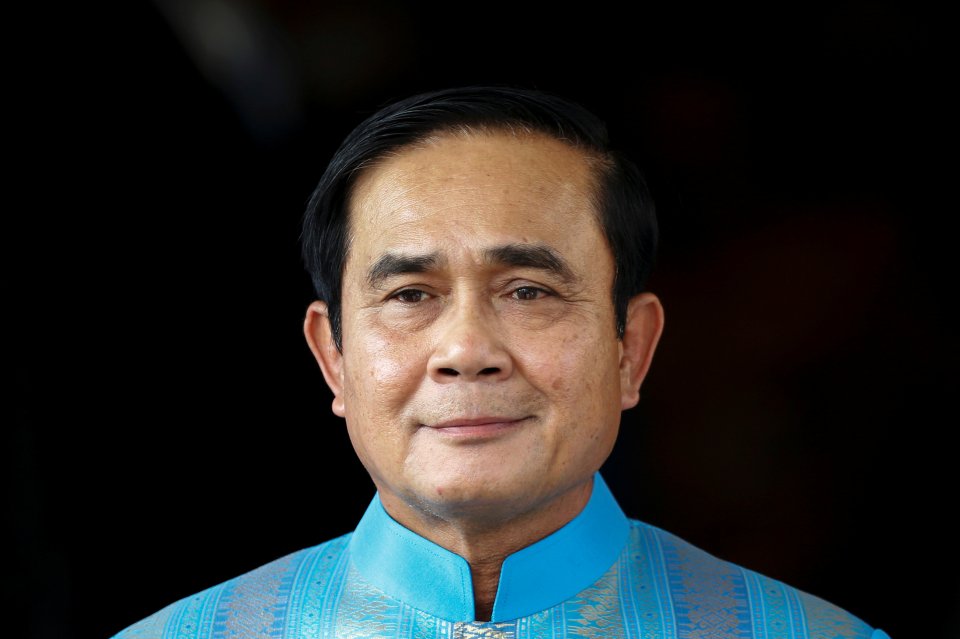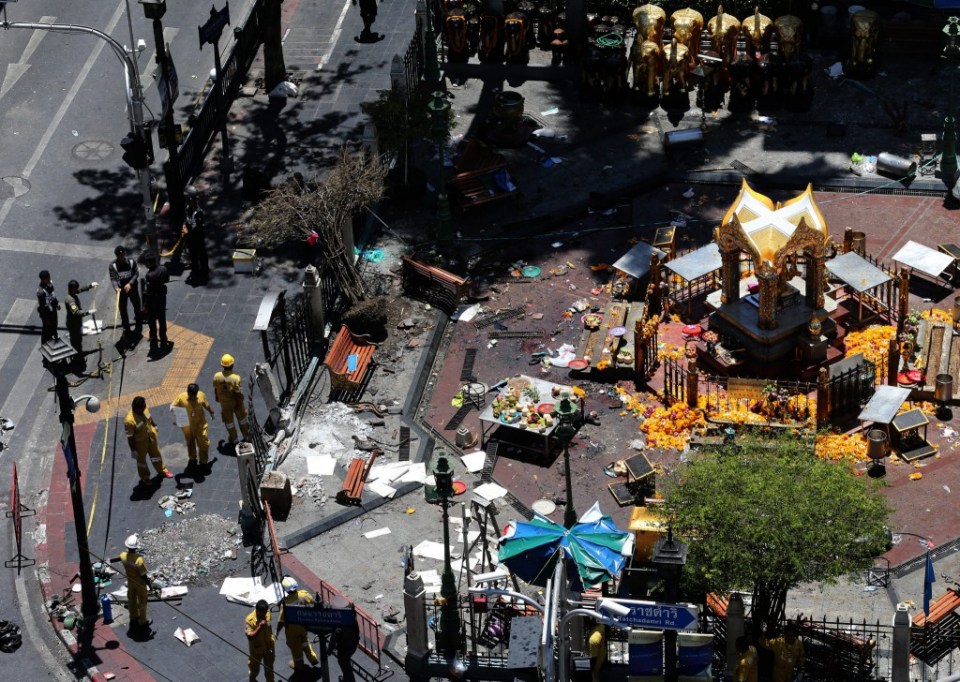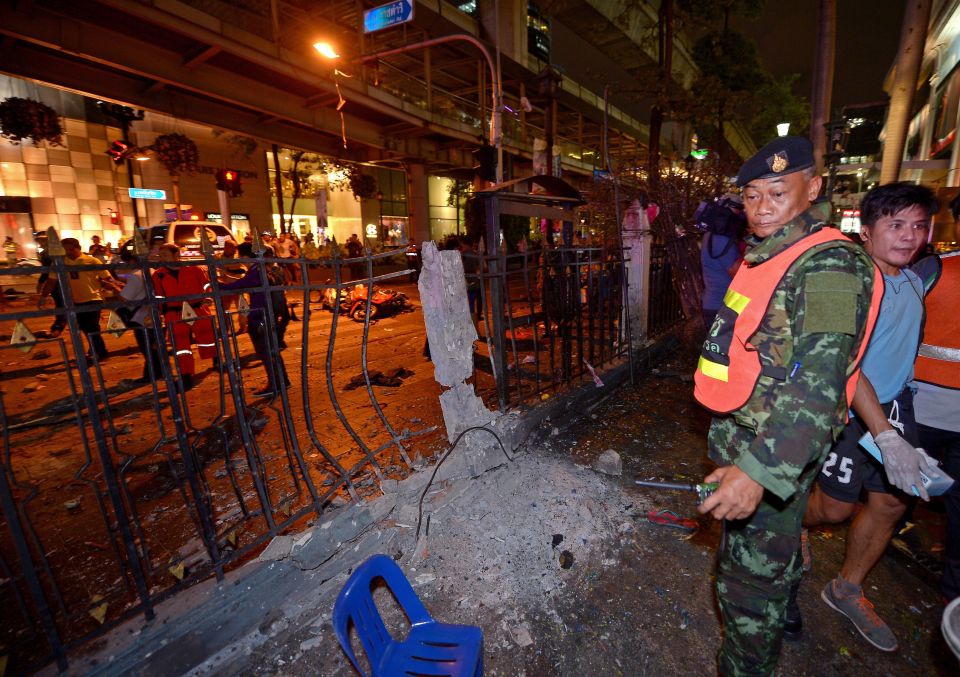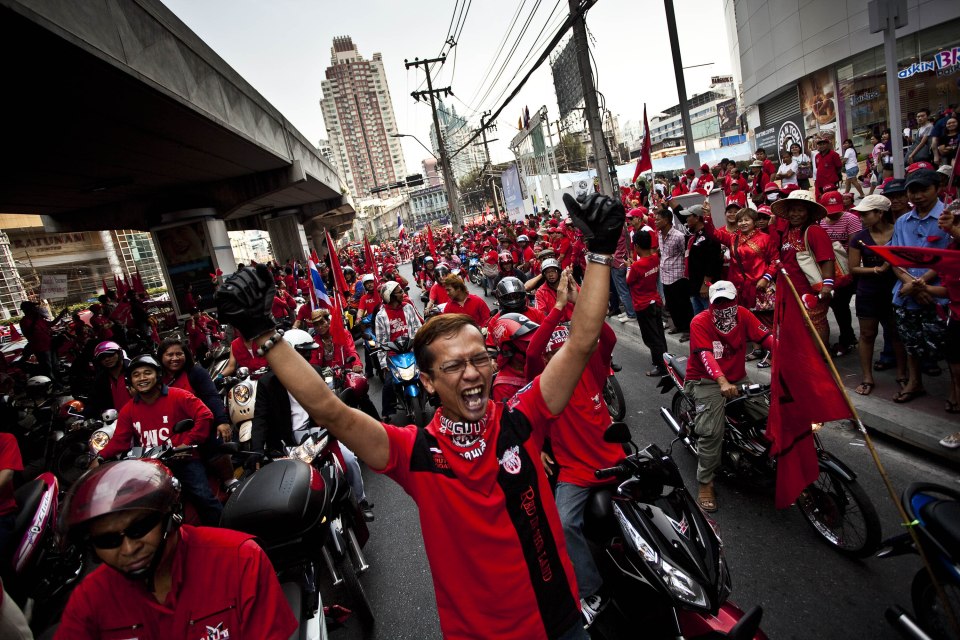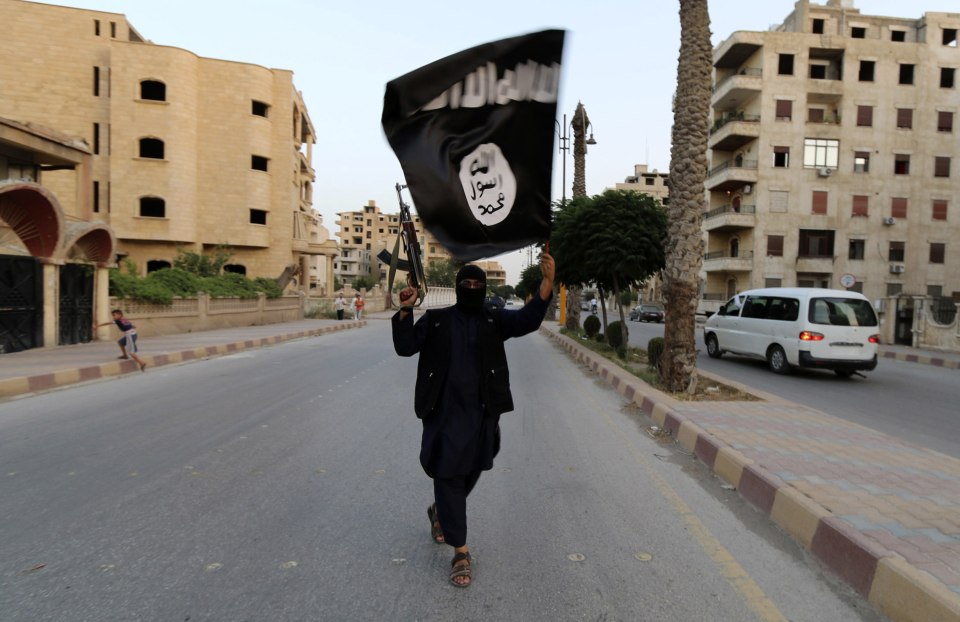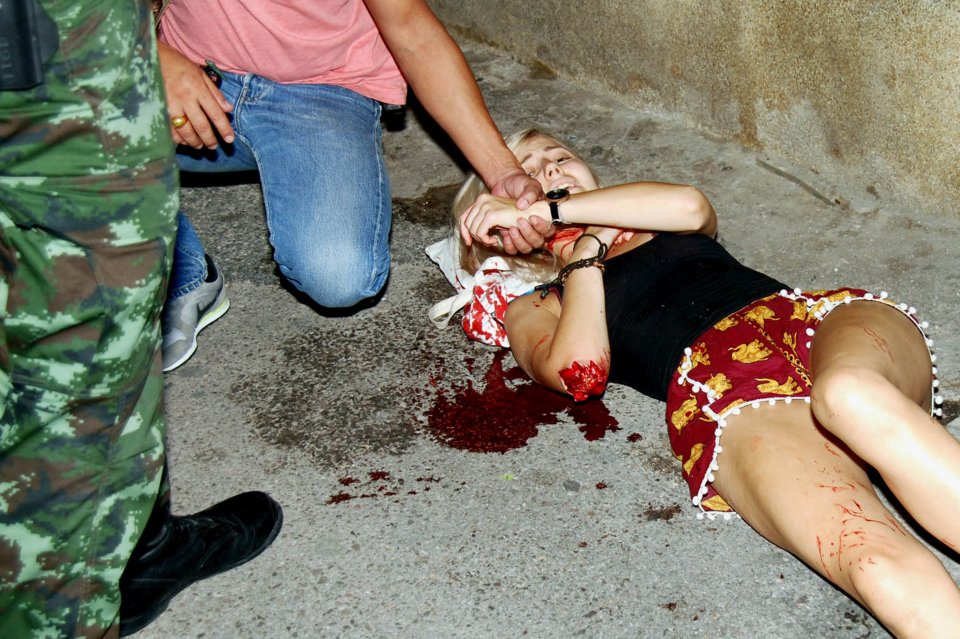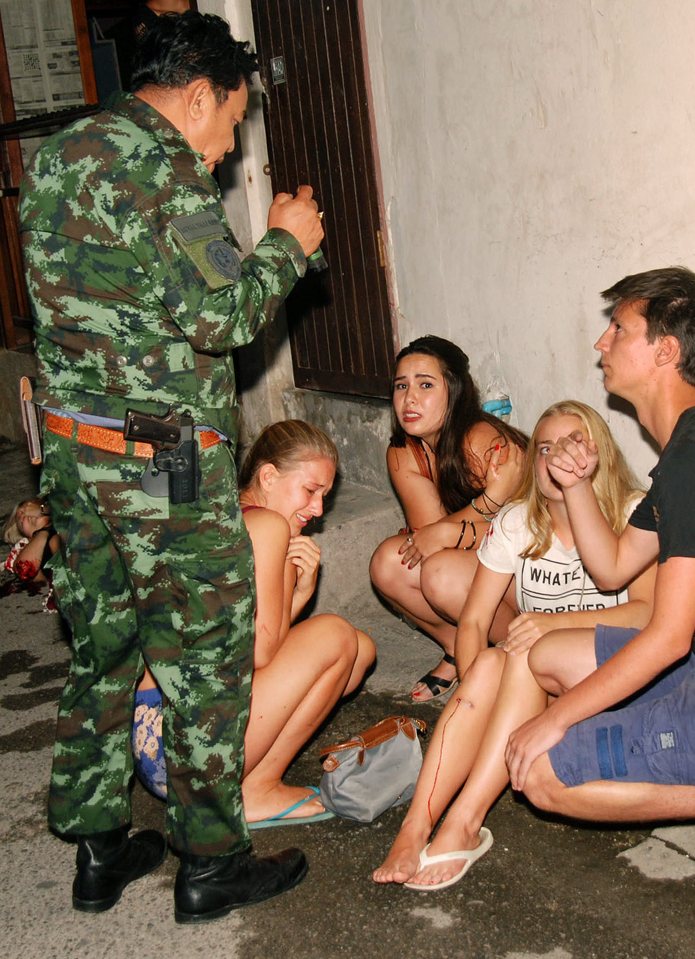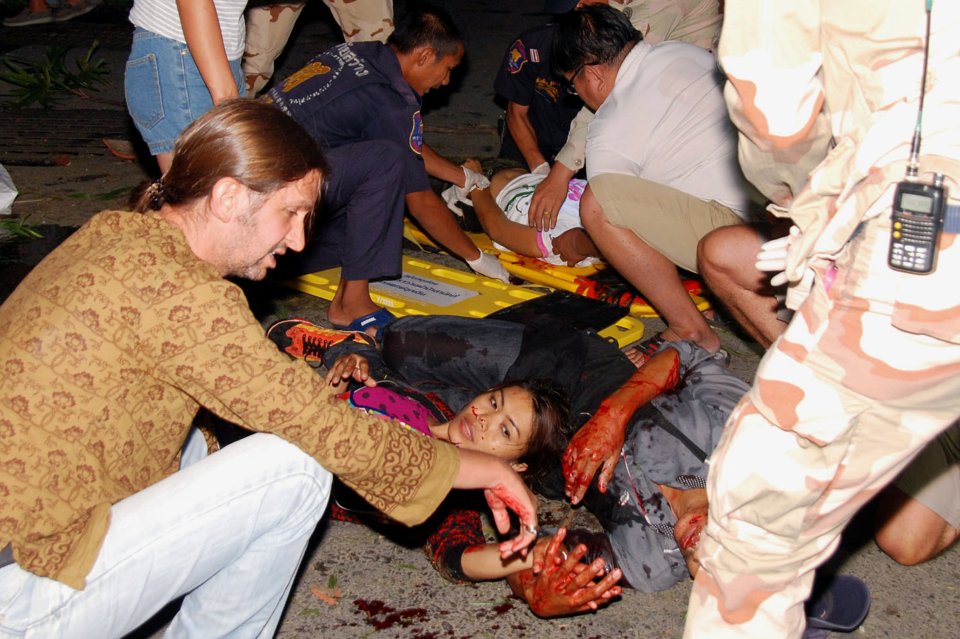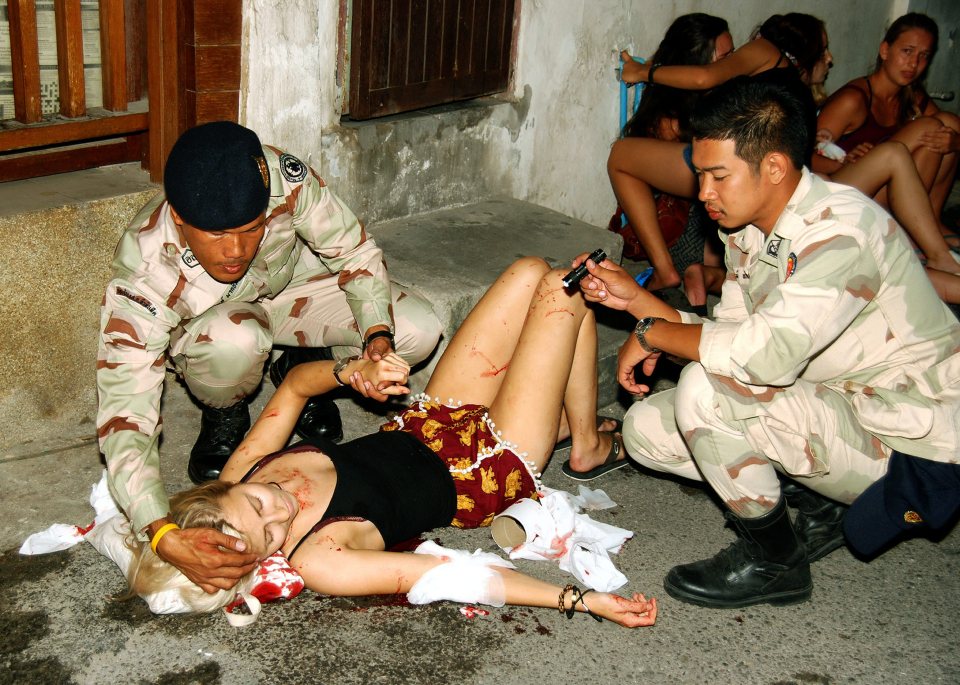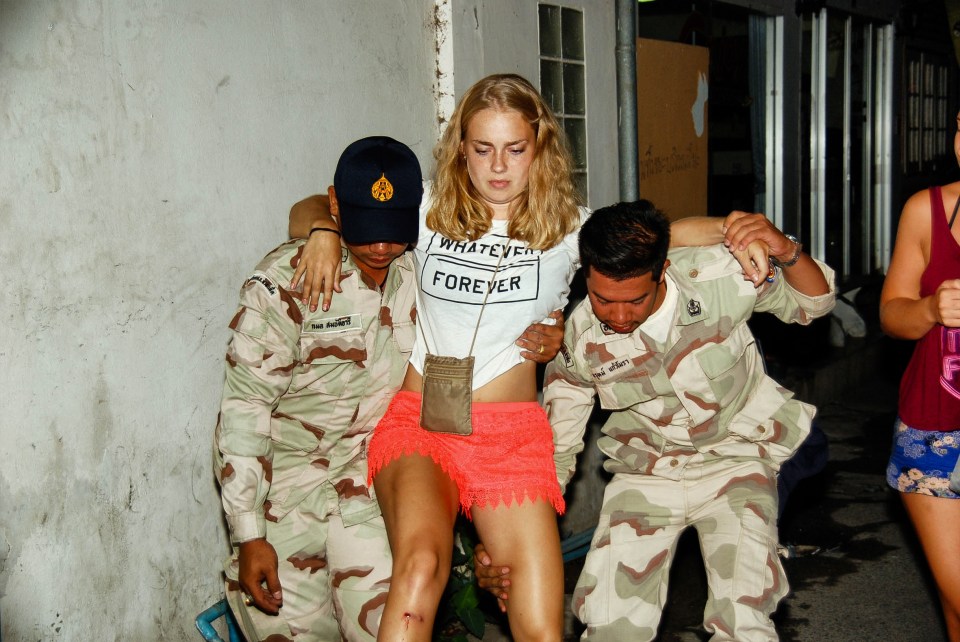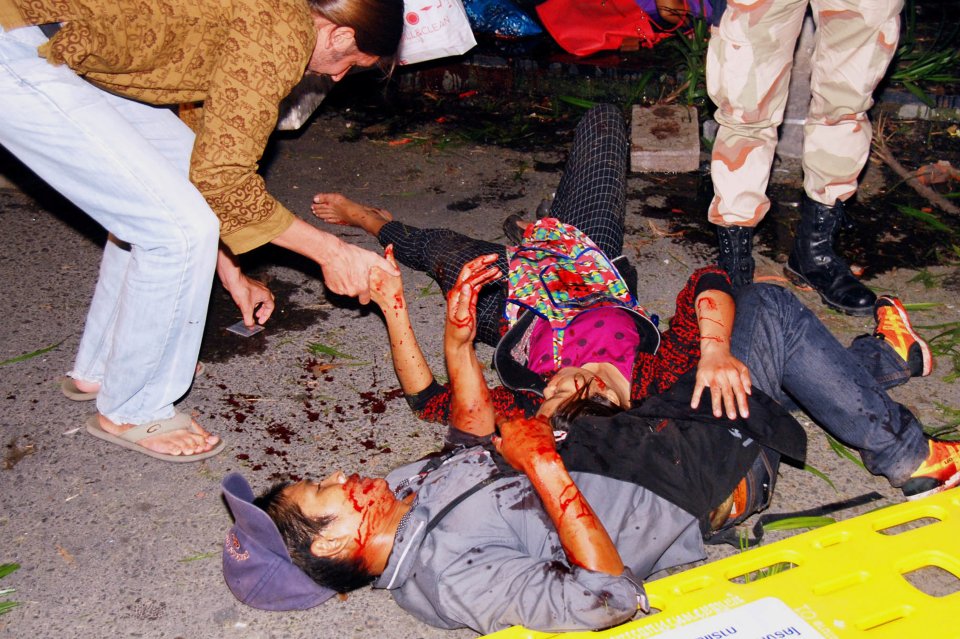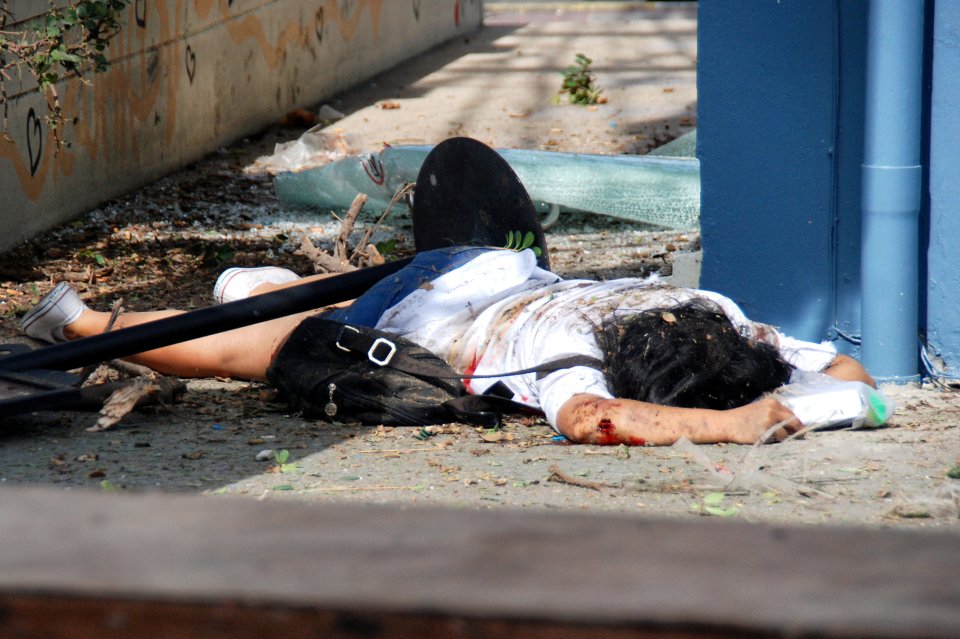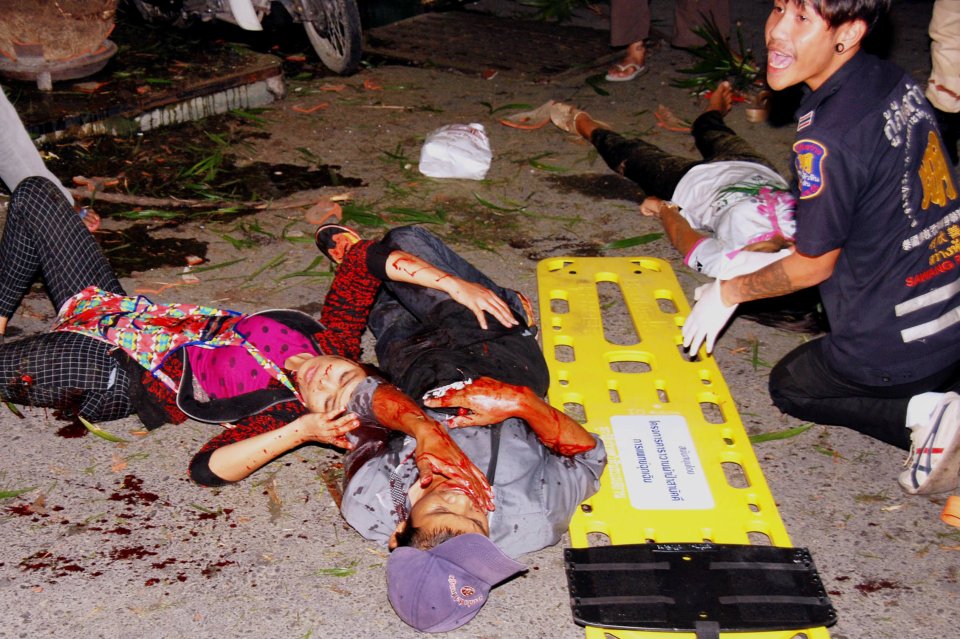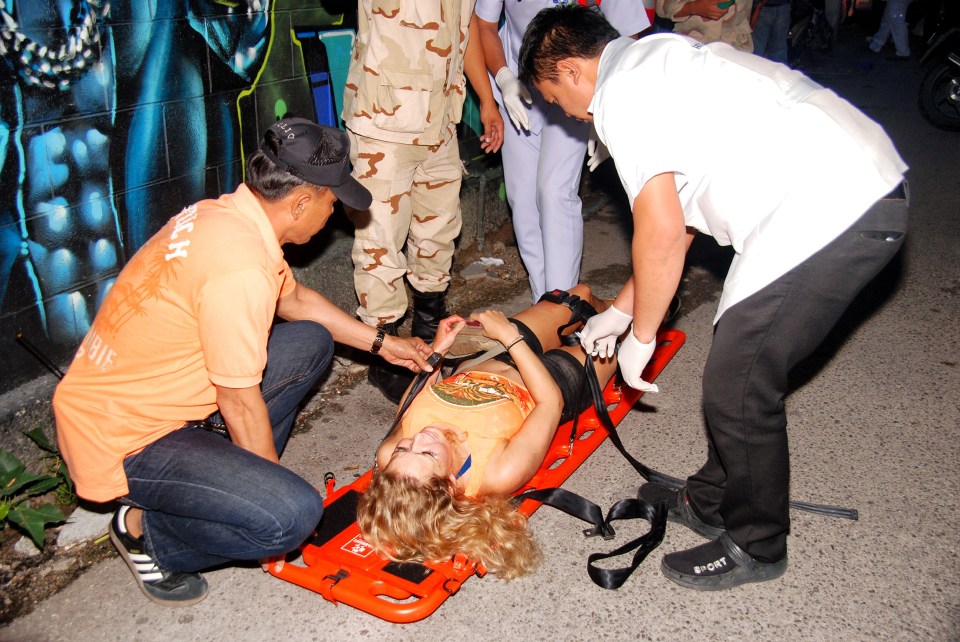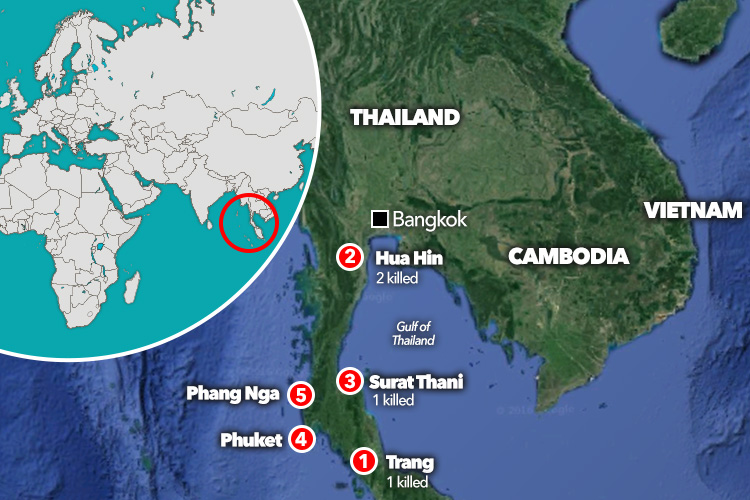Thailand bombings: Who are the likely suspects behind Phuket and Hua Hin bomb attacks?
No group has yet claimed responsibility for the crimes with theories including ISIS and anti-government protesters wanting to embarrass the military
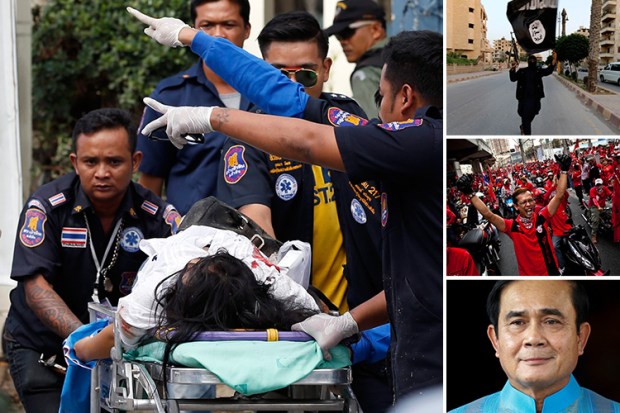
THAI police were today scrambling to identify which fanatics were behind the deadly bombing spree that has rocked the country in a bid to prevent more attacks.
With no one claiming responsibility over the bombings, questions over who could have had the motivation and the resources to carry out the almost simultaneous attacks have now been raised as the country struggles to come to terms with the savagery.
The sites targeted in the fatal bombings were mostly confined to areas popular with tourists.
Police Colonel Krisana Pattanacharoen told reporters that investigators were searching for clues.
He added: “But what we know for sure is that the incidents are not linked directly to any kinds of terrorism, in fact it's local sabotage and we are trying to identify those responsible behind the scenes."
Despite these assurances, no one has yet come forward to claim responsibility for the attacks, sparking speculation over who could have been involved.
The timing of the attacks have coincided with the birthday of Thai Queen Sirikit on August 12 with rumours that they were done to embarrass those in power.
On Wednesday, junta leader Prayuth Chan-ocha took credit for bringing stability back to the country following a nationwide referendum that voted in favour of a new constitution.
The new constitution will now give the military greater powers in parliament.
But according to the Associated Press, the attacks might have been timed to embarrass the military government.
The timing also coincides with the bombing in Bangkok - with the attack taking place almost a year to the day of the fatal attack.
Twenty people were killed with more than 100 injured in the bombing that targeted the Erawan shrine.
Suspects, including a man in a yellow shirt, were arrested.
No group has claimed responsibility for the attack but police blamed Uighur Muslims.
The outgoing police chief announced on September 28 that the case had been solved with the main perpetrators in custody.
Two ethnic Uighur Chinese men have since been charged over the attack, with both men pleading not guilty.
The men, Yusufu Mieraili and Adem Karadag, face charges of murder and possessing explosives.
But Mr Karadag's lawyer has said the accused was innocent and had been tortured into confessing.
Further fuelling the fire that the attacks were carried out by the same people involved in last year's bombings is the method used.
The bombings, believed to have been set off when a backpack was left at the shrine and detonated by a mobile phone call, are also similar in method to the most recent bombings.
Reports out of Thailand after the most recent bomb attacks said that the bombs had been hidden in plants on a busy bar street.
RELATED STORIES
Those who have been involved in former conflicts have also been examined as being potentially involved in the recent attack, with the Red Shirts one of the main groups.
The supporters of ousted Prime Minister Yingluck Shinawatra, mostly made up of rural poor and left-wing activists and students, were involved in street battles against the military almost 10 years ago.
The group has been involved in street protests in recent years, agitating against the junta.
But the area is no stranger to unrest in Thailand's south after decades of conflict.
Thailand's south, which is dominated by Muslims, spiralled into an Islamist insurgency in the early 2000s with the violence mainly seen within the provinces of Yala, Pattani and Narathiwat, near or bordering Malaysia.
Tactics used by the groups, who have used separatist or jihadist rhetoric, include drive-by shootings, bombings and beheadings, often targeted at security forces, government and local Buddhist communities.
And while authorities have recently tried to hose down fears that the attack was from an international threat, security ministers were warned just this week that groups like the Islamic State were increasingly funnelling funds into southeast Asia.
ISIS has long been able to conduct damaging terrorism attacks with just a few attackers.
In a risk study prepared by Indonesia, Malaysia, Singapore, Thailand, the Philippines and Australia, it was warned an attack was likely.
The assessment said: "Given only small sums are required to stage a deadly attack, even modest amounts of funding from foreign terrorist groups pose a significant risk to the region's security."
TIMELINE OF TERROR: How eleven bomb blasts ripped through five Thai tourist hot spots in just 18 hours
THURSDAY AUGUST 113pm: A bomb explodes at the Centre Point Market in Muang district in the Trang province. One man is killed with at least half a dozen injured
9.45pm and 10.15pm: Two bombs go off at the 56 beer bar in tourism hotspot of Hua Hin, killing one person and injuring 19
11pm: Raintree spa is targeted with a bomb detonating at the Hua Hin resort. One woman is killed with 21 people injured in the attacks
FRIDAY AUGUST 12
7.45am: A bomb goes off at the Loma public park in Patong district, Phuket. One person suffers minor injuries
8am: A bomb is detonated out the front of the Muang Surat police station in Surat Thani. No one is injured
8.45am: A bomb, planted in the traffic control box in Kathu district, Phuket, explodes. No one is injured
9.14am: Two bombs, hidden in the pot plants near the Hua Hin’s clock tower, explode just five minutes apart in Hua Hin. One person is killed and another three are wounded
10am: Two cars are damaged when two bombs explode out the front of Bang Miang in Ta Kua Pa district of Phang Nga province
9.30am: A suspicious object was found in a potato-chip can in front of the Ban Thai Hotel in Phuket.
Two more blasts rocked the popular tourist resort of Patong on the island of Phuket early this morning after two hit Hua Hin yesterday.
At least ten attacks have been reported at resorts across Thailand after explosives were hidden in plant pots.
Two Brits are believed to be amongst those injured during the blasts, which seemingly targeted tourist hotspots.
Similar explosions hit the regions of Surat Thani, Phang Nga and Trang – popular stop-off destinations for tourists on their way to the country’s idyllic southern islands.
One of those killed was a Thai woman while at least 20 more are injured, including two Brits.
It is believed the bombs were hidden in plant pots and detonated using mobile phones.
Local hospitals have said 11 of those injured in Hua Hin - where terrorists targeted a bustling street filled with bars and restaurants - are tourists, two of whom are believed to be British.
Hospitals told ABC three victims were Dutch, seven were German, Austrian or Italian and one person's nationality remains unknown.
We pay for your stories! Do you have a story for The Sun Online news team? Email us at tips@the-sun.co.uk or call 0207 782 4368


